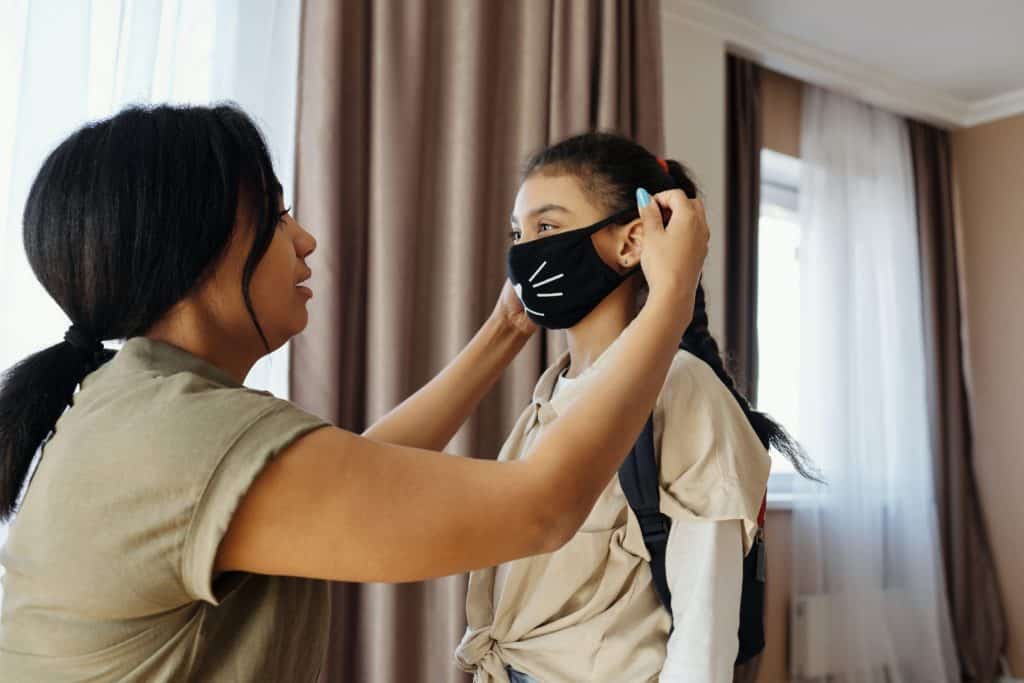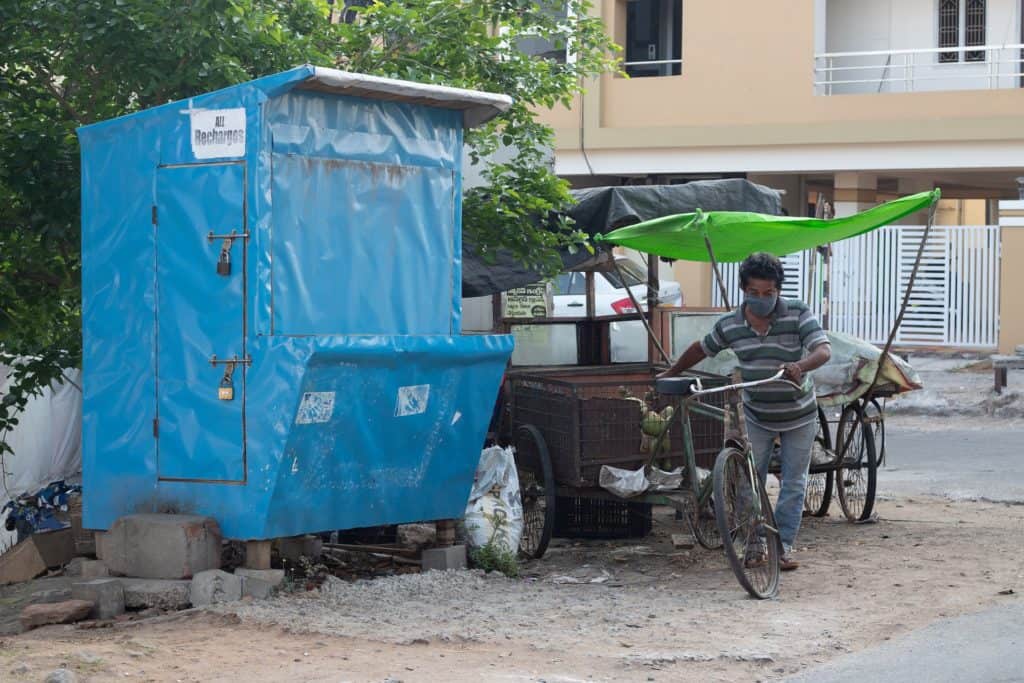Tulip Brian Miranda, a Corporator of Mumbai’s H-East ward’s Kalina area, has been running a community kitchen since the enforcement of the lockdown. Every day, she distributes 1,000 food packets to needy families. But when the Brihanmumbai Municipal Corporation (BMC) and the Maharashtra government decided to initiate food distribution, Miranda wasn’t consulted about the diversity of her ward. “I was simply asked to inform them what my requirements were,” says Miranda, a member of Indian National Congress party.
As the local area representatives, Corporators are imagined to be a citizen’s first point of redressal over an inaccessible MLA or MP, but in Mumbai, the Municipal Corporation officers hold far more power over them.
Miranda is one of the 227 local Corporators elected by 12.5 million Mumbaikars every municipal election. The city’s 227 wards are grouped into 24 municipal wards headed by Assistant Municipal Commissioners, who are bureaucratic appointees and not elected representatives.
“We have been totally sidelined,” Miranda says. “Whatever decisions have been taken, they (BMC) have not even intimated us. We have not been taken into the loop.”
The city also has Deputy Municipal Commissioners, who oversee departments like health, education, environment, among others. The Additional Municipal Commissioners work as department heads, and finally, there’s the Municipal Commissioner at the helm. Each derive their power from the Mumbai Municipal Corporation Act, 1888.
When many citizens complained to Corporator Miranda about the unavailability of ration, it led her to question the significance of elected officials during the pandemic. “I know every nook and corner of my ward and have my own volunteers. If we were entrusted with the job (of food distribution), we would have done it categorically with analysis of what area requires how much (food).”
Like Miranda, Harish Chheda, a BJP Corporator of the R-North ward’s Mandpeshwar colony, agrees that the Corporator’s role has been limited. He was asked to enlist those residents in his ward who don’t have a ration card. But, he says, “Out of 1000, BMC has only distributed about 25 kits so far,” putting the onus of follow-ups on him.
Effective COVID-19 management requires coordination with the elected representatives. “But unfortunately”, Chheda says, “since the lockdown, there hasn’t been a single council meeting. The administration hasn’t even tried to take opinions from the local representative.”
A Corporator typically attends various council or General Body Meetings (GBMs) of the corporation, along with other departmental or committee meetings that s/he is a part of.
Politician vs Bureaucrat
On March 14, the state government issued a notification under the colonial Epidemic Diseases Act 1897 giving BMC’s Municipal Commissioner, typically a senior IAS officer, more power to control the pandemic.
According to the administration’s current structure, at any given ward across the city, it’s the Municipal Commissioner and the Assistant Municipal Commissioners who have spearheaded COVID-19 control.
In order to manage the pandemic, BMC broke down their response from a centralised process to decentralised ward control rooms. But Corporators were not a part of these control rooms.
In fact, in the absence of meetings or city-wide consultation, a Corporator’s role in the pandemic has been determined by their own initiative. “The administration is stretched”, Asif Zakaria, an INC Corporator for H-West ward’s Bandra Talao area, says. “As elected representatives, we should have more power, but as (at the moment) we can only recommend, suggest, propose while the administration executes, we should make the best of the existing resources.”
Zakaria believes that his job is to connect the people and the administration, and to do so, he has been “self-driven”, consistently approaching the Assistant Municipal Commissioner of his ward with enquiries and suggestions.
Many Corporators around the city have accepted their primary role as a coordinator between the citizens and the administration, trying to make most of the status-quo.

The Broad View
Praja Foundation, a non-governmental organisation focussed on accountable governance, has been distributing relief material across the city, and 95% of their relief work has been possible through Corporators’ help. “We undervalue their role but they are the people who can be most effective in times of crisis,” says, Milind Mhaske, Director, Praja Foundation.
In an ideal scenario, the council, the health committees, the ward committees would have regularly met, but despite the shortcoming, Corporators have done a lot as individuals, says Mhaske. “But as elected, officials, they’re not allowed to do anything,” he adds.
The problem is indicative of the challenges with city governance in India. “Technically the council (comprising of elected officials) should have led policy-making and decision making, but across the country, we have administrators who have taken decisions without having local knowledge,” Mhaske says.
As the power lies with the Commissioner and not the council, the decisions, too, have been taken by the Commissioner. The council hasn’t met to pass resolutions or make budget provisions since February.
Instead, on April 20, BMC issued a notification allowing Corporators to spend Rs 10 lakh from their Corporator fund for PPE kits, sanitizers, masks, and other COVID-19 relief related materials. Mhaske calls it “a disposable amount” which deflects focus from the main issue which is the elephantine BMC budget.
Corporators across the city, however, have used the fund for various purposes. Sujata Patekar, a Shiv Sena Corporator from R-North’s Ekta Nagar area used the money to provide oxygen cylinders to a hospital, to distribute sanitizers and masks to anganwadi workers, and oxygen metres to buildings.
Patekar believes that the Corporator and administration are “two wheels of the same cart” and need to work together.
Another Sena corporator, Rajul Patel, of K-West ward’s MHADA colony area, says that the burden on the BMC administration is immense. “And if because of that responsibility, they didn’t interact with us, we’re not angry about it.”
That has not stopped residents from seeking answers from their Corporators. “Residents approached Rutuja Tiwari, Mumbai’s M-East ward’s Corporator, but after a dissatisfying response, they’ve been reliant on local activists and charities,” says Balasaheb Sable, a citizen of Maharashtra Nagar.
Throughout April and May, Sable had been distributing food packets in Mumbai’s M-East ward. The government, too, distributed khichdi, but in the patchwork of chawls, SRA buildings and slums. “Food was not reaching everyone,” says Sable.
Resident Radha Vijayan Nair of Kandivali’s (East) Lokhandwala Township, says, Corporators are focused on slums, not buildings. “We tried to reach her (Corporator Surekha Patil) for some help but she wasn’t available.”

Assistant Municipal Commissioners maintain that they understand the significance of a Corporator in a neighbourhood and have not sidelined them. “We are working together”, Sandhya Nandekar, the Assistant Municipal Commissioner for R-North ward, says. “We have had zoom meetings with them, told them about our actions, and taken their suggestions. The relief material has gone through Corporators and their volunteers are helping us find symptomatic patients in slums.”
Prashant Sapkale, Assistant Municipal Commissioner of K-East ward, also says that Corporators have helped them in high-risk contact tracing. “I’ve been in touch with all 14 of my Corporators on a daily basis. They’re not only involved in relief work but also in day-to-day operations.”
Missing Link
If at the beginning of the lockdown, citizens found it challenging to access information, elected Corporators or local area representatives didn’t seem to fare any better.
Miranda says that information about which patient in her ward was admitted in hospitals or who was discharged wasn’t made available to her. And upon her request, her ward’s Assistant Municipal Commissioner, the late Ashok Khairnar, made it accessible. But the same secrecy was maintained even when the corporation created a COVID-19 camp for the police at the Mumbai University campus. “They don’t correspond or coordinate with me unless I have an issue and I reach out to them,” Miranda says.
Miranda’s role, then, like of all other corporators, has been of coordination. She has been the eyes of the neighbourhood. When she noticed people filling the streets, she insisted that Ashok Khairnar enforce a stricter lockdown in the neighbourhood.
Chedda, too, noticed how the antiviral Remdesivir injections were not available at BMC hospitals and wrote to the Commissioner to address the gap. He uses this as an example to illustrate how Corporators have a direct contact with people and their problems.
“No one can be more active in a ward than a Corporator,” he says adding that the they be used a lot more than they currently are. The last Council meeting was held in February with the Corporators. “My suggestion is that there should be a meeting as soon as possible.”